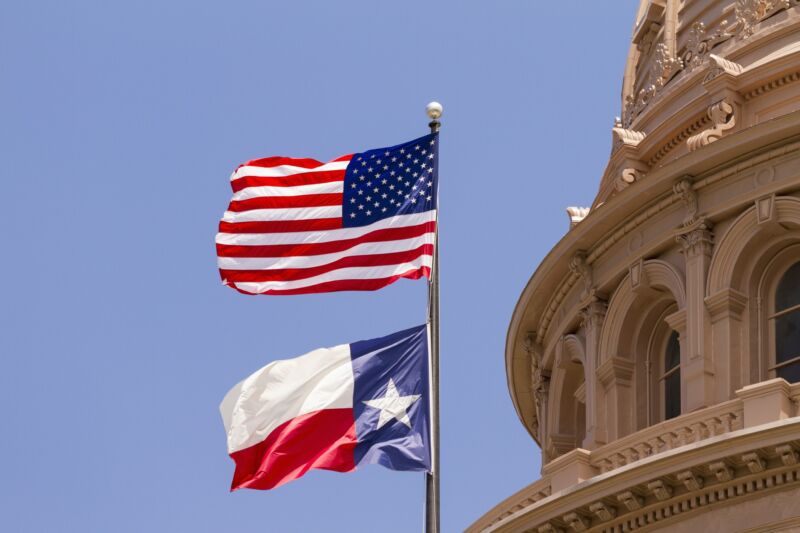
A federal judge yesterday blocked a Texas state law that bans "censorship" on social media platforms, ruling that the law violates the social networks' First Amendment right to moderate user-submitted content.
"Social media platforms have a First Amendment right to moderate content disseminated on their platforms," Judge Robert Pitman wrote. He found that the Texas law "compels social media platforms to disseminate objectionable content and impermissibly restricts their editorial discretion" and that the law's "prohibitions on 'censorship' and constraints on how social media platforms disseminate content violate the First Amendment."
Pitman's ruling granted a preliminary injunction requested by tech industry groups NetChoice and the Computer & Communications & Industry Association (CCIA), which sued Texas in US District Court for the Western District of Texas. Facebook, Google, Twitter, and various other tech companies belong to the groups.
The injunction prohibits the Texas attorney general from enforcing the law. The judge found that the plaintiffs are likely to succeed on the merits of their case, a prerequisite for granting a preliminary injunction.
“Replete with constitutional defects”
Pitman rejected a severability clause that aimed to save parts of the law if the rest was invalidated. He found that nothing can be severed from the law and survive because the unconstitutional portions are "replete with constitutional defects, including unconstitutional content and speaker-based infringement on editorial discretion and onerously burdensome disclosure and operational requirements."
"This ruling upholds the First Amendment and protects Internet users," CCIA President Matt Schruers said yesterday. "Without this temporary injunction, Texas's social media law would make the Internet a more dangerous place by tying the hands of companies protecting users from abuse, scams, or extremist propaganda... The First Amendment ensures that the government can't force a citizen or company to be associated with a viewpoint they disapprove of, and that applies with particular force when a state law would prevent companies from enforcing policies against Nazi propaganda, hate speech, and disinformation from foreign agents."
When Texas Gov. Greg Abbott signed the bill in September, he claimed the law is needed to protect Texans' First Amendment rights against "a dangerous movement by social media companies to silence conservative viewpoints and ideas." Florida tried to impose a similar social media law but it was also blocked by a federal judge for violating the First Amendment.
Parler and Gab excluded from law
Under the Texas law, a platform that labels a post as misinformation "may be discriminating against that user's viewpoint by adding its own disclaimer," Pitman wrote. The law thus "restricts social media platforms' First Amendment right to engage in expression when they disagree with or object to content."
The threat of lawsuits for violating the state law "chills the social media platforms' speech rights." Pitman also found that the law's disclosure and operational requirements impose burdens on social media platforms' editorial discretion, and that the law "discriminates based on content and speaker."
Pitman noted that Texas lawmakers excluded conservative social networks Parler and Gab by applying the law only to platforms with 50 million or more monthly active users in the US. One state senator "unsuccessfully proposed lowering the threshold to 25 million monthly users in an effort to include" sites like Parler and Gab, Pitman wrote.
reader comments
220